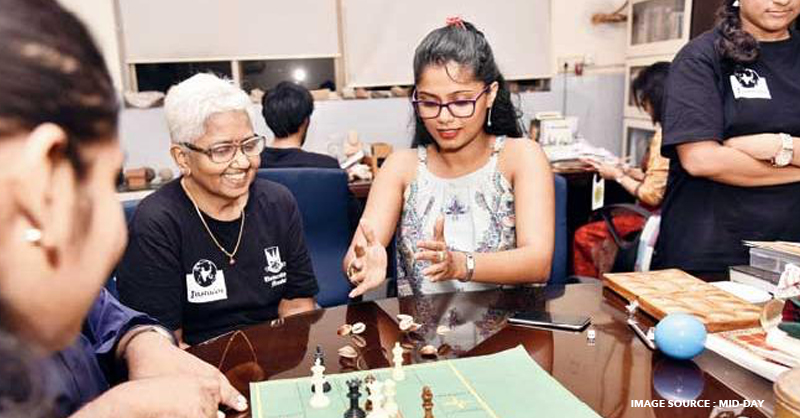Mumbai University is hosting the ancient games weekend from June 16thto 17th. This event is an attempt to revive thirteen Indian games from well-known ones like chess and gulli-danda to lesser noted ones like Pallanguzhi, which involves the gathering of cowrie coins.
Ultimately the goal is to bridge the inter-generational gap while simultaneously having fun,” says Yogini Aatreya, a student organiser of the games.
This idea was conferred at a geology and archaeology exhibition last year at the University, where it absolutely met with enthusiasms. “We had 3 generations of individuals with full of excitement crowding around the game stall. There was a 70-year-old man teaching an 8-year-old girl strategy. Through the sport they come up an otherwise unlikely relationship i.e friendship,” says Yogini Aatreya, a student organiser of the games.
These games will need mental agility and strategic thinking.
Games in store are -:
Pachisi: It has been played in India for many centuries. One of the earliest mentions of Pachisi is in the Mahabharata, in the famous game of dice in which Yudhishthira lost to the Kauravas.
Tablan: A checkers-like game for two, it was once played in the districts of the princely state of Mysore, with both players sitting on the long side of the board.
Chaturanga: This game gave rise to chess. It was originally played with dice.
Navakankari/Naukhade: It is known as Nine Men’s Morris in English. This game probably came to India with the Indo-Roman trade. Played the world over, it is a two-player strategy game requiring quick thinking and agile moves.
Wagh-Bakri (Tiger-Goat): It was a game also called Ādu Puli Āttam in Tamil and Malyalam, Meka Puli Ātta in Telugu and Ādu Huli Ātta in Kanada.
Ali Guli Mane: It is an abstract strategy board game of Karnataka. It is known as Chenna Mane in Tulu and Pallanguzhi in Tamil. It means wooden board with holes.
Chaupar: It is a tougher version of Pachisi.
Mokshapattnam: It is called Snakes and Ladder in the recent times. This game was built to learn about karma, moksha, kamas, destiny, desire, etc.
Sagar Gote: It is a classic favourite played with five big round seeds (Jage/Sagar goti). It improves concentration, hand-eye coordination and dexterity.
Ashtachamma: This game probably descended from the ancient Ashtāpad game. Traditionally, cowrie shells are used as dice: if all four shells land inverted, you make a score of four (chamma) and if all land straight you make a score of eight (Ashta) and get a bonus throw.
Vithi Dandu: It is played by a group consisting of minimum four people. It is popular across rural India with variations in name and scoring method.

